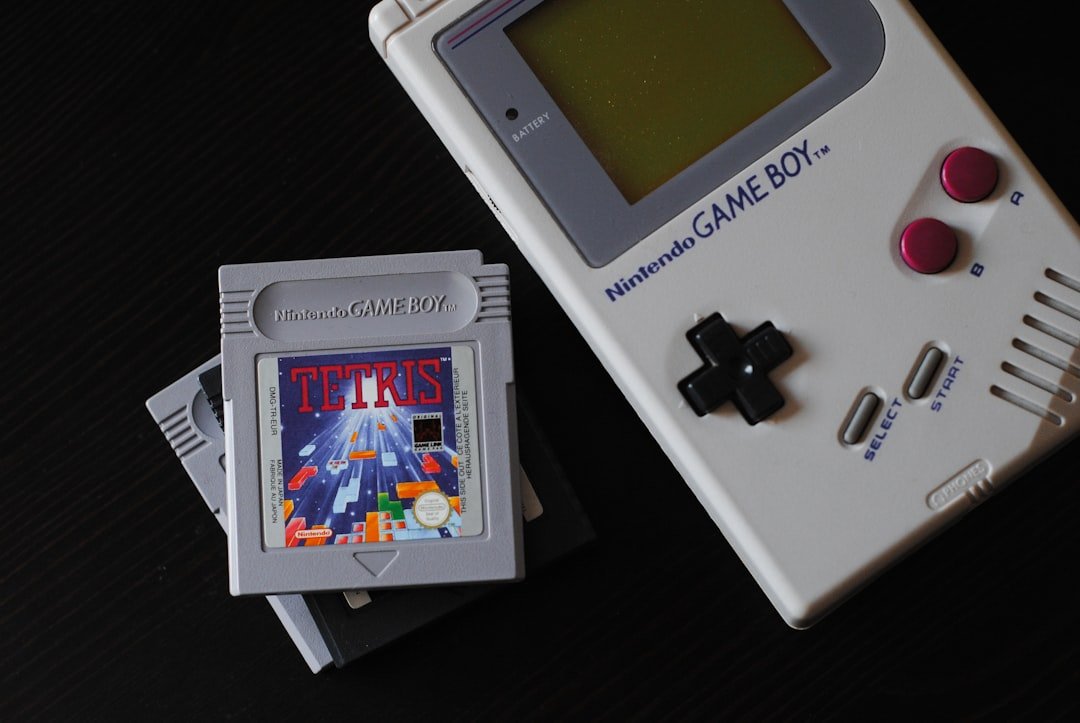What is ADHD Object Permanence? How to Improve Memory Retention

Both children and adults can be impacted by Attention Deficit Hyperactivity Disorder (ADHD), a neurodevelopmental condition. It is typified by signs like impulsivity, hyperactivity, & inattention. Impaired memory retention is one of the less well-known difficulties that people with ADHD deal with. Memory retention is the capacity to remember and store information over an extended period of time.
Key Takeaways
- Object permanence is the ability to understand that objects continue to exist even when they are out of sight.
- Individuals with ADHD often struggle with memory retention due to difficulties with object permanence.
- An ADHD workbook can be a comprehensive guide to improving memory retention for individuals with ADHD.
- Signs and symptoms of object permanence issues in individuals with ADHD include forgetfulness, disorganization, and difficulty following instructions.
- Improving memory retention in individuals with ADHD is important for daily life and can be achieved through practical tips, techniques, and the use of an ADHD workbook.
Recognizing how object permanence works is essential to understanding how ADHD affects memory retention. The concept of object permanence holds that things exist even when they are hidden from view. It is a cognitive milestone that early childhood is when it usually develops. Unfortunately, object permanence can be a problem for those with ADHD, which can seriously impair their memory recall skills.
We will discuss the relationship between object permanence and ADHD in this article, as well as the value of memory retention in ADHD patients, memory retention techniques, and the function of an ADHD workbook in improving memory retention. Seeing, hearing, and touching objects does not negate their existence; this is known as object permanence. People are able to remember and recall information because of this basic cognitive ability. A child who has object permanence, for instance, knows that their favorite toy is still in the room even if it is concealed by a curtain.
Problems with object permanence can have a major effect on memory retention in people with ADHD. People who have trouble keeping a mental image of things or ideas when they are not immediately present may find it difficult to retain information. This may make it difficult for them to follow directions, finish assignments, or remember details from prior encounters. Object permanence problems can appear in a variety of ways in the day-to-day lives of ADHD sufferers. For instance, they could constantly lose things because they can’t seem to recall where they’ve seen them.
Because they are unable to hold all the steps in their minds at once, they may also find it difficult to follow instructions with multiple steps. They might also have trouble planning ahead & managing their time since they have trouble seeing deadlines or future events. Executive functioning, working memory, and attention are just a few of the cognitive functions that are impacted by ADHD, a complex disorder. Retention of memories and object permanence are intimately related to these cognitive functions.
Studies have indicated that working memory deficits—the inability to retain & process information in the mind for brief intervals of time—are frequently observed in people with ADHD. Because it enables people to retain a mental image of concepts or objects even when they are not physically present, working memory is essential for object permanence. Moreover, attention & focus problems are common in people with ADHD, which can make object permanence problems worse. It gets harder for them to keep up a mental image of things or ideas when they are easily distracted.
This may cause problems with information recall & memory. Problems with object permanence may also make other symptoms of ADHD worse. For instance, people with ADHD may have trouble controlling their impulsivity because they have trouble thinking through the long-term effects of their decisions. This may impede their capacity to retain knowledge and make wise decisions even more. If someone has ADHD, an ADHD Workbook can help them become more adept at remembering things.
It offers a methodical and organized approach to improving memory abilities. Workbooks usually contain exercises & activities designed to address particular memory retention issues that are frequently experienced by people with ADHD. Enhancing working memory, attention, and executive functioning are the main goals of the ADHD workbook.
Exercises that help people hold and manipulate information in their minds are part of it; these exercises help people get better at maintaining a mental image of an object or concept. Activities to improve focus and attention are also included in the workbook. These skills are essential for learning retention.
The ADHD workbook may contain the following exercises and activities as examples:1. Exercises involving repetition: These activities help to strengthen memory retention by having participants repeat information several times. A list of words or numbers, for instance, might be repeated aloud multiple times to participants. 2. Exercises that require mental imagery to help with memory retention are called visualization exercises.
People might be asked, for instance, to vividly picture & describe an object or scene in their minds. 3. Chunking methods: These methods entail dividing data into more manageable, smaller sections. For instance, to help with memory, people might be asked to put similar information in groups.
Since object permanence problems can overlap with other memory retention problems, it can be difficult to diagnose object permanence problems in ADHD patients. There are a few typical symptoms and indicators to watch out for, though:1. A person suffering from object permanence problems may find it difficult to retain & adhere to multi-step instructions. To aid in their memory retention, they might require written instructions or regular reminders. 2.
Items that are frequently misplaced: People who have trouble remembering where they last saw items may have frequent misplacements. Their time spent looking for misplaced objects could be considerable. 3. Poor time management: People who have trouble seeing deadlines or future events may find it difficult to plan and manage their time.
They might routinely skip deadlines or appointments. It is imperative to distinguish object permanence problems from other forms of memory retention problems. A comprehensive evaluation and diagnosis should be obtained by consulting with a healthcare professional or specialist. For people with ADHD, maintaining their memory is essential to daily functioning. Aspects of their personal, professional, & academic lives are all impacted. The following are some instances of how memory retention problems may affect people with ADHD:1.
Academic success: The ability to retain information is crucial for learning. People who have ADHD may find it difficult to remember what is taught in class, which can make it difficult for them to finish assignments, prepare for tests, and do well academically. 2. In the workplace, memory recall is essential to productivity and job performance.
ADHD sufferers may have trouble remembering crucial assignments, due dates, & instructions, which may hinder their capacity to complete tasks and function effectively at work. Three. Personal life: Daily routines and interpersonal relationships depend on the ability to remember information.
ADHD sufferers may find it difficult to recall significant dates, occasions, or obligations, which can strain relationships and lead to frustration for both the sufferer and others. ADHD sufferers can enhance their memory retention skills by utilizing a number of useful techniques. It is possible to use these tactics independently or in combination with an ADHD workbook.
Following are a few instances:1. Repetition: Reinforcing memory retention can be achieved by repeating information several times. If someone wants to review material frequently, they can make flashcards, write it down, or repeat it aloud. 2.
Mental imagery can help with memory recall through visualization. People are able to mentally picture & describe in great detail information that they wish to recall. 3. Chunking: Information can be retained more easily if it is divided into smaller, easier-to-manage chunks. To help themselves remember things better, people can group similar information together or make mnemonics or acronyms. 4. Employ external aids: People with ADHD can benefit from using external aids like calendars, planners, and reminder apps to help them remember important tasks, deadlines, and appointments.
Enhancing memory retention with an ADHD workbook can be a very successful strategy. Here’s how to use an ADHD workbook step-by-step:1. Get acquainted with the workbook by reading through the instructions and comprehending its objectives. 2. Establish specific objectives: Determine the precise memory retention issues you wish to resolve and make progress toward your objectives. 3. The exercises & activities in the workbook should be followed: Complete the tasks & exercises in a methodical manner.
Before going on to the next exercise, take some time to make sure you understand the previous one. 4. Practice often; the secret is to be consistent. Set aside time in your schedule to complete the workbook’s exercises & activities every day or every week. 5. Track your progress and acknowledge minor accomplishments along the way to ensure that you are making progress.
Consider how the workouts and activities are assisting you in strengthening your memory. 6. Ask for help when you need it: Don’t be afraid to ask for help from a therapist, ADHD coach, or medical professional if you are having trouble with any particular exercises or activities. For those with ADHD, medication may help with memory retention. Methylphenidate and amphetamines are two stimulant drugs that are frequently prescribed to treat ADHD symptoms.
These drugs can aid with working memory, focus, and attention—all of which are essential for memory retention. But before choosing medication as a treatment, it’s critical to weigh its advantages and disadvantages. Medication benefits include increased working memory, focus, and attention, all of which can improve memory retention.
Cons of medication may include the need for constant monitoring & adjustment, individual variability in response, & possible side effects. To learn more about the advantages & disadvantages of using medication to treat ADHD & improve memory retention, it is advised that you speak with a healthcare provider. If you have ADHD, an ADHD workbook can help you be more productive and improve your memory retention skills. Through the workbook’s methodical & structured approach to memory enhancement, people can get past obstacles related to object permanence and enhance their memory retention skills in general.
The ADHD workbook can improve memory retention as well as productivity & general quality of life for those who have ADHD. People can become more effective in their academic, professional, and personal endeavors by increasing their capacity to retain and recall information. It takes a combination of coping strategies and support networks to help people with ADHD overcome object permanence difficulties.
The following coping strategies may be useful:1. Employ outside assistance: To help make up for object permanence concerns, make use of outside assistance like calendars, planners, & reminder apps. 2. Divide jobs into smaller steps: Dividing tasks into smaller, more manageable steps can help you remember and finish them more quickly. 3. Seek assistance: For direction and assistance in handling object permanence issues, get in touch with a medical expert, therapist, or ADHD coach.
Managing object permanence issues can also benefit from support networks like counseling and ADHD coaching. These experts are able to offer methods, approaches, and assistance that are customized to meet the unique requirements of the person. It’s important for people with ADHD to comprehend object permanence & how it affects memory retention.
Problems with object permanence have the potential to seriously impair memory retention skills, making it difficult to remember and retrieve information. However, people with ADHD can enhance their overall quality of life & improve their memory retention abilities with the aid of an ADHD workbook, useful strategies, and support networks. To succeed academically, professionally, & personally, it is critical to address issues with object permanence and memory retention.
If you’re interested in learning more about improving memory retention and understanding ADHD object permanence, you might find this article from HowToStart.digital helpful. Titled “The Science Behind Memory Retention and How to Improve It,” it delves into the various factors that affect memory and provides practical tips on how to enhance your ability to remember information. Check it out here for valuable insights and strategies to boost your memory skills.
FAQs
What is ADHD Object Permanence?
ADHD Object Permanence is a term used to describe the difficulty that individuals with ADHD have in retaining information in their working memory. This can lead to forgetfulness, disorganization, and difficulty completing tasks.
What are the symptoms of ADHD Object Permanence?
Symptoms of ADHD Object Permanence include forgetfulness, difficulty completing tasks, disorganization, and trouble following through on instructions. Individuals with ADHD may also struggle with time management and have difficulty prioritizing tasks.
How is ADHD Object Permanence diagnosed?
ADHD Object Permanence is not a formal diagnosis, but rather a term used to describe a specific symptom of ADHD. A diagnosis of ADHD is typically made by a healthcare professional based on a comprehensive evaluation that includes a review of symptoms, medical history, and other factors.
What are some strategies for improving memory retention in individuals with ADHD?
Strategies for improving memory retention in individuals with ADHD include breaking tasks down into smaller, more manageable steps, using visual aids and reminders, practicing mindfulness and meditation, and getting enough sleep and exercise. It may also be helpful to work with a therapist or coach who specializes in ADHD.
Can medication help with ADHD Object Permanence?
Medication can be an effective treatment for ADHD, including symptoms related to memory retention. However, medication should be used in conjunction with other strategies, such as therapy and lifestyle changes, for the best results. It is important to work with a healthcare professional to determine the best treatment plan for each individual.





